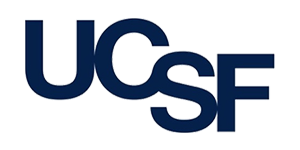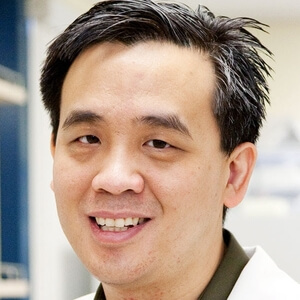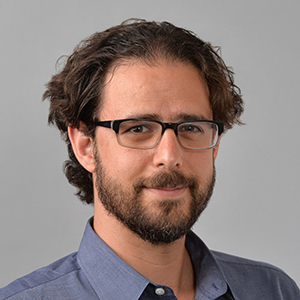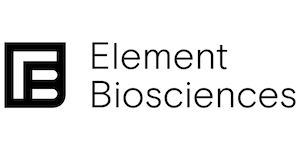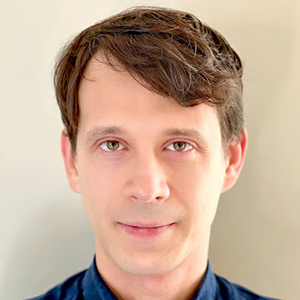Session Abstract – PMWC 2023 Silicon Valley
Track Chair: Cindy Lawley, Olink
- How New Public-Private Collaboratives Can Catalyze Transformative Health Breakthroughs
Chair: Keith Yamamoto, UCSF
- Douglas Friedman, Engineering Biology Research Consortium (EBRC)
- Jay Keasling, JBEI (Joint BioEnergy Institute)
- Renee Wegrzyn, ARPA-H - Moving Sequencing into the Clinical Setting
Chair: Charles Chiu, UCSF
- Charlotte Hobbs, Rady Children’s Hospital
- Euan Ashley, Stanford University
- Sivan Bercovici, Karius
- Heike Sichtig, Foundation Medicine - Evolving Sequencing Applications: Spatial Single-Cell Multi-Omics
Chair: Michael Rhodes, NanoString
- Chrstina Curtis, Stanford - How will Cheap Genome Sequencing Impact Genomic Medicine (PANEL)
Chair: Euan Ashley, Stanford
- Shawn Levy, Element Biosciences
- Aleks Rajkovic, UCSF
- David Bentley, Illumina
- Stacey Gabriel, Broad Inst.
- Sean Hofherr, Fabric Genomics - Single-cell, Spatial, and in Situ Technologies
Chair: Dina Finan, 10x Genomics
- Carina Emery, Miltenyi Biotec - Combining WGS with a AI-based Tumor Enrichment Method
Chair: Asaf Zviran, C2I
- Multi-omics Approaches Supporting Clinical Translation
Chair: Cindy Lawley, Olink
- Erin Smith, Takeda
- Si Wu, Stanford
- Christopher Whelan, J&J - Molecular Diagnosis New standard with NGS for Neurological and Infectious Conditions
Chair: Scott Rabuka, DNA Genotek
- Forrest Wright, Quadrant Laboratories
- Frank Middleton, SUNY Upstate Medical University - PMWC Showcase
- Josh Lauer, Ultime
- Olivier Lucas, Oxford Nanopore
- Lukasz Boryn, Ardigen
Session Chair Profile
Biography
Dr. Yamamoto is a leader in science and public policy. He has made an indelible impact by simultaneously advocating for Precision Medicine across the .edu, .gov, .com and .org sectors. As Chair of the National Academies Board on Life Sciences, he appointed and served on the study committee that produced “Toward Precision Medicine: Building a Knowledge Network for Biomedical Research and a New Taxonomy of Disease”, the report that enunciated the precision medicine concept. He helped to stimulate President Obama’s interest, which led to the Precision Medicine Initiative, as well as Gov. Jerry Brown’s launch of the California Initiative to Advance Precision Medicine. He also promoted a precision medicine approach to Vice President Biden’s Cancer Moonshot, provoked broader participation by the corporate and nonprofit sectors, and directs UCSF Precision Medicine, an institution-wide imperative. In addition, Dr. Yamamoto has led or served on numerous federal or national committees focused on public and science policy, public understanding and support of biological research, research funding and peer review, and science education and the biomedical workforce; he chairs the Coalition for the Life Sciences, and sits on the National Academy of Medicine Council and Executive Committee, and the National Academy of Sciences Division of Earth and Life Studies Advisory Committee. He is a member of the Advisory Board for Lawrence Berkeley National Laboratory and the Board of Directors and Executive Committee of Research!America. At UCSF, Dr. Yamamoto is vice chancellor for science policy and strategy and professor of cellular and molecular pharmacology. He is a leading researcher, investigating transcriptional regulation by nuclear receptors, which mediate the actions of essential hormones and cellular signals; he uses mechanistic and systems approaches to pursue these problems in pure molecules, cells and whole organisms. He is an elected member of the National Academy of Sciences, the National Academy of Medicine, the American Academy of Arts and Sciences, and the American Academy of Microbiology, and a fellow of the American Association for the Advancement of Science.
Session Chair Profile
Biography
Charles Chiu, M.D./Ph.D. is a Professor at UCSF, Director of the UCSF-Abbott Viral Diagnostics and Discovery Center (VDDC), and Associate Director of the UCSF Clinical Microbiology Laboratory. Chiu currently leads a translational research laboratory focused on clinical metagenomic sequencing assay development for infectious diseases and genomic investigation and surveillance of emerging pathogens, including the SARS-CoV-2 coronavirus. He also uses RNA-Seq transcriptome profiling to develop predictive models using machine learning for host response-based diagnosis of COVID-19 and other infections. Chiu’s work is supported by funding from the National Institutes of Health (NIH), Department of Defense, US Centers for Disease Control and Prevention (CDC), philanthropy, and the California Initiative to Advance Precision Medicine. He has authored more than 100 peer-reviewed publications (>20 on COVID-19), holds over 15 patents and patent applications, and serves on the scientific advisory board for Mammoth Biosciences, Danaher Dx, Biomesense, and Flightpath.
Session Chair Profile
Biography
Dina currently focuses on helping accelerate drug discovery and development with next generation single cell and spatial technologies. During her PhD program, Dina studied molecular motor proteins and their role in embryonic development. She then continued her work in biochemistry, engineering stable enzymes in the field of industrial biotechnology. She gradually made her way to product management, where she discovered a passion for commercializing better tools to accelerate the pace of scientific research.
Session Chair Profile
Biography
At NanoString Dr. Rhodes worked on all aspects of NanoString technologies as developed from a mid plex gene expression company, into a spatial biology company, culminating in the release of GeoMx DSP and CosMx SMI.
A a post doc in Chicago working on genetics of metal transport in P. aeruginosa was followed returned to UK to work at United Kingdom Human Genome Mapping Project Resource Centre in charge of four teams: - Mouse resequencing, linkage Hotel, Academic Services and Custom services. Joined Applied Biosystems in 1999, worked on Genotyping, qPCR and Next Generation Sequencing. Joined NanoString in 2012 after seeing the potential of the nCounter technology to take the discoveries from NGS and apply them to translational research. Subsequently Ive worked on developing the NanoString spatial portfolio GeoMx DSP and AtoMx SMI
Session Chair Profile
Biography
Scott Rabuka has held product strategy and product management leadership roles throughout his 25 year career with the past 15 years leading the portfolio growth of collection and stabilization products at DNA Genotek. He oversees the portfolio growth initiatives at DNA Genotek across all segments served including Genomics, Microbiome & Oncology. Prior to DNA Genotek, Mr. Rabuka held product management roles at Visualsonics, Agfa Healthcare and Waterloo Maple. Mr. Rabuka earned his Bachelors degree in Applied Mathematics with Honours from the University of Waterloo in 1997.
Session Chair Profile
Biography
Charles Chiu, M.D./Ph.D. is a Professor at UCSF, Director of the UCSF-Abbott Viral Diagnostics and Discovery Center (VDDC), and Associate Director of the UCSF Clinical Microbiology Laboratory. Chiu currently leads a translational research laboratory focused on clinical metagenomic sequencing assay development for infectious diseases and genomic investigation and surveillance of emerging pathogens, including the SARS-CoV-2 coronavirus. He also uses RNA-Seq transcriptome profiling to develop predictive models using machine learning for host response-based diagnosis of COVID-19 and other infections. Chiu’s work is supported by funding from the National Institutes of Health (NIH), Department of Defense, US Centers for Disease Control and Prevention (CDC), philanthropy, and the California Initiative to Advance Precision Medicine. He has authored more than 100 peer-reviewed publications (>20 on COVID-19), holds over 15 patents and patent applications, and serves on the scientific advisory board for Mammoth Biosciences, Danaher Dx, Biomesense, and Flightpath.
Speaker Profile
Biography
Dr. Hobbs joined the RCIGM executive leadership team in 2019 bringing extensive experience
as a distinguished neonatologist, biomedical researcher, medical educator and hospital
administrator. She has expertise in genetic epidemiology and is Board Certified in Pediatrics
and Clinical Informatics. At RCIGM, her portfolio includes leading the research and clinical
programs, overseeing the clinical genomics team, including physicians, nurses, genetic
counselors, and project managers. Previously, Dr. Hobbs was Executive Associate Dean for
Clinical and Translational Research at the University of Arkansas for Medical Sciences (UAMS)
and Arkansas Children's Hospital. During her career, she has been awarded numerous NIH
multi-million grants.
Speaker Profile
Biography
Sivan is an innovator in artificial intelligence, pioneering the development of complex computational and data platforms, as well as novel machine-learning models designed to address critical challenges in human disease. Prior to Karius, Sivan was a co-founder and Chief Technology Officer at Lifecode, where he led the development of the analytical platform and validation of several clinical assays across oncology and rare hereditary diseases. He holds a Ph.D. in Computer Science from the Technion – Israel Institute of Technology, and continued to Stanford’s Artificial Intelligence Lab to pursue his post-doctoral research.
Speaker Profile
Biography
Euan Ashley is Associate Dean and Professor of Medicine and Genetics at Stanford University in California. Over the last decade his team has focused on the application of the human genome to medicine. He was recognized by the Obama White House for his contributions to Personalized Medicine and awarded the American Heart Association Medal of Honor for Genomic and Precision Medicine. His book The Genome Odyssey – Medical Mysteries and the Incredible Quest to Solve Them was released in 2021. He is co-founder of three companies: Personalis, DeepCell and SVEXA. Father to three young Americans, in his spare time, he tries to understand American football, plays jazz saxophone, and conducts research on the health benefits of single malt Scotch whisky.
Speaker Profile
Biography
Current - Regulatory Affairs Software/Data Products @FMI, #Digital Health, AI/ML, Genomics, Oncology
Prior - 8+yrs SME @FDA, Post-Doc Computational Biology @UF, PhD Biomedical Engineering @BU
Session Chair Profile
Biography
Euan Ashley is Associate Dean and Professor of Medicine and Genetics at Stanford University in California. Over the last decade his team has focused on the application of the human genome to medicine. He was recognized by the Obama White House for his contributions to Personalized Medicine and awarded the American Heart Association Medal of Honor for Genomic and Precision Medicine. His book The Genome Odyssey – Medical Mysteries and the Incredible Quest to Solve Them was released in 2021. He is co-founder of three companies: Personalis, DeepCell and SVEXA. Father to three young Americans, in his spare time, he tries to understand American football, plays jazz saxophone, and conducts research on the health benefits of single malt Scotch whisky.
Speaker Profile
Biography
Shawn has over 20 years of experience in genomic applications development and technology optimization as well as operational management of research and development and clinical testing programs. Shawn has served in a variety of roles in industry and academia. While at HudsonAlpha, Shawn developed a comprehensive genomics facility that has supported more than 5,200 projects from locations around the world. His lab has raised more than $150M in extramural funding, culminating in the largest financial transaction in HudsonAlpha’s history when the assets of his research group were sold to Discovery Life Sciences. Before HudsonAlpha, Shawn was a faculty member at Vanderbilt University Medical Center in the Department of Biomedical Informatics and the Department of Molecular Physiology and Biophysics. He is an author or co-author on more than 200 peer-reviewed publications with over 45,000 citations.
Session Chair Profile
Biography
Cindy is passionate about innovation to make genetic and multi-omic technologies easier and cheaper to measure. She sees such innovation as pivotal to lower the barrier of entry for implementing scalable, reproducible solutions advancing individualized medicine and health equity. In over 14 years at Illumina and together with customers, she helped develop solutions to advance the understanding of genetic risk and holds several USDA Excellence in Technology Transfer awards for her work leading Illumina’s Consortia Program. She joined Olink in 2020 soon after the launch of the Explore Platform that leverages next generation sequencing as a high throughput proteomic readout. Ask her about how high throughput proteomics are helping translate the impact our genetics has on more real time health.
Speaker Profile
Biography
As a co-inventor of the technology used at C2i Genomics, Asaf led the company development from academy research concept to VC-backed growth-stage company. Dr. Zviran brings over 15 years of R&D management in life science and defense, including numerous high impact scientific publications and patents. As a former cancer survivor, Asaf is committed to improving cancer patients’ quality of life and outcomes.
Talk
C2informed: AI-Based Whole Genome Sequencing of ctDNA
C2informed is a personalized tumor-informed assay for molecular residual disease (MRD) detection in oncology. This test uses whole-genome sequencing (WGS), and by advanced bioinformatics and artificial intelligence technology, the C2informed enables precision MRD monitoring, for early detection of recurrence and disease surveillance, even in the setting of a low-burden disease.
Speaker Profile
Biography
Josh has over 20 years of experience in various commercial leadership roles, most recently as Genentech’s VP of Personalized Healthcare Market Development, and Lifecycle Leader for Foundation Medicine responsible for its international business. He also spent 7 years with Roche Diagnostics, leading various sales and business development functions in the US and Europe. Josh’s experience also includes strategy roles with McKinsey and product management at Palm. Josh holds an MBA from the Tuck School of Business at Dartmouth College and a BS in Computer Engineering from Purdue University.
Speaker Profile
Biography
Dr Bentley has focussed on the development and deployment of fast, accurate human whole genome sequencing (WGS) to transform precision medicine at population-scale around the world. Early applications include genetic disease and cancer, exemplified by the completion of the 100,000 genomes project in 2018, which led to the commissioning of WGS as part of the Genomic Medicine Service in the National Health Service in England (NHSE). This work also triggered other larger scale WGS opportunities including UK BioBank, AllofUS and the Our Future Health projects. Prior to Illumina, Dr Bentley was a founder member of the Board of Management at the Sanger Centre where he played a leading role in the Human Genome Project and related international consortia to characterise genetic variation, including the HapMap Project. Dr Bentley laid the foundations for his career in human medical genomics in early studies of molecular genetics of disease at Oxford and Guy’s Hospital, London.
Speaker Profile
Biography
Si started her career from applying mass spectrometry-based metabolomics on elucidation of disease mechanism and therapeutic effects of Traditional Chinese Medicine (TCM) at metabolic level. Then she expanded her interest and expertise to quantitative genetics including GWAS and linkage mapping, as well as integrating multi-omics by network analysis approaches in her PhD. During her postdoc training at Stanford University, Michael Snyder’s lab, she combined multi-omics profiling and integration with machine learning, allowing her to address many crucial questions in precision health and medicine mainly focusing on physical exercise, cancer, and preeclampsia. Now she is working as a senior bioinformatics scientist II at AbbVie Genomics Research Center (GRC) Computational Oncology, mainly focusing on applying various large-scale genomics data (WGS, WES, RNA-seq, proteomics, single-cell RNA-seq, CITE-seq, spatial transcriptomics, etc) to advance oncology drug target discovery.
Speaker Profile
Biography
Dr. Christopher D. Whelan is a neuroscience and genetics researcher from Dublin, Ireland. He received his Ph.D. in Diagnostics & Therapeutics for Human Disease from the Royal College of Surgeons in Ireland, and completed at two-year post-doc with the ENIGMA neuroimaging consortium at USC, Los Angeles, before moving to industry in 2016. He has held roles as Manager of Neuroscience Genetics at Pfizer and Associate Director of Translational Genetics at Biogen before joining J&J in September 2022.
Speaker Profile
Biography
Stacey Gabriel is a human geneticist with a research interest in large-scale genomics research. The organization that she leads operates as one of the largest sequencing centers in the world and continually explores, validates, optimizes, and implements new technologies, methods, and analysis tools to meet the needs of the scientific community. She has played a central role in the development of methods for generating and analyzing data using genomic technologies for both cancer and medical genetics studies. Her research on the haplotype structure of the human genome provided foundation for the Human HapMap Project. She directs the Broad Institute’s execution in flagship large-scale projects including the Human HapMap, the 1000 Genomes Project, The Cancer Genome Atlas, and the All of Us Research Program. During the covid-19 pandemic Dr. Gabriel led the development and execution of a commercial-scale diagnostic testing and viral surveillance activity.
Speaker Profile
Biography
Dr. Frank Middleton is a Professor in the Departments of Neuroscience, Biochemistry, Psychiatry and Pediatrics at SUNY Upstate Medical University, where he also directs the SUNY Molecular Analysis Core facility. Dr. Middletons research uses high-throughput multiomic approaches to profile and discover biomarkers for neurodevelopmental, neuropsychiatric, and neurodegenerative disorders, including autism spectrum disorder (ASD), Parkinson’s disease (PD) and mild traumatic brain injury (mTBI). Dr. Middleton’s research has also revealed that several noncoding RNAs related to these conditions are likely transported to saliva from the brain, thus enabling saliva to provide a window into brain function. More recently, Dr. Middletons saliva-based research has explored the effects of SARS-CoV-2 infection with different variant lineages on host immune responses. His studies on these and other global health priorities has resulted in more than 165 peer-reviewed publications, and the issuing of two US patents for the use of saliva in diagnosing ASD and mTBI.
Speaker Profile
Biography
As the Director of Assay Development at Quadrant Biosciences, Dr. Wright leads his team inthe development of novel saliva-based assays in the fields of genetics, epigenetics and virology,with a primary focus on neurodevelopmental and neurodegenerative diseases and disorders.These assays will be evolutionary in the advancement of diagnostics that will aid in the earlydetection of global health priorities such as autism spectrum disorder, concussion andParkinson’s disease.These comprehensive testing solutions will utilize at-home, saliva-based sample collection, idealfor telehealth-enabled practices, and allow for increased access to much-needed patient testing.
Speaker Profile
Biography
Douglas Friedman is CEO of BioMADE, the Bioindustrial Manufacturing Innovation Institute. His interests lie in the fields of synthetic biology, bioindustrial manufacturing, and biotechnology as they relate to the development of the bioeconomy. He is a subject matter expert on emerging biotechnologies, biotechnology policy, and related national security topics. He is a member of several advisory groups including the Department of Commerce, Bureau of Industry & Security Materials and Equipment Technical Advisory Committee. Prior to BioMADE, Doug was the inaugural Executive Director of Engineering Biology Research Consortium (EBRC) and currently serves on its Steering Committee. He earned a Ph.D. in Chemistry from Northwestern University and a B.S. in Chemical Biology from the University of California, Berkeley.
Speaker Profile
Biography
President Biden appointed Renee Wegrzyn, PhD, as the first Director of the Advanced Research Projects Agency for Health (ARPA-H). Most recently Dr. Wegrzyn was the Vice President for Business Development at Ginkgo Bioworks (NYSE: DNA), the leading horizontal platform for cell programming. ARPA-H was established in March 2022 to drive transformative health breakthroughs that cannot readily be accomplished through traditional research or commercial activity. Dr. Wegrzyn holds a PhD and BS in Applied Biology from the Georgia Institute of Technology, was a Fellow in the Center for Health Security Emerging Leaders in Biosecurity Initiative (ELBI), and completed her postdoctoral training as an Alexander von Humboldt Fellow in Heidelberg, Germany. Early in her career, she led research and development teams in private industry in the areas of biosecurity, gene therapies, emerging infectious disease, neuromodulation, synthetic biology, and diagnostics. She served as Program Manager in the Biological Technologies Office (BTO) of the Defense Advanced Research Projects Agency (DARPA), where she leveraged the tools of synthetic biology and gene editing to enhance biosecurity, support the domestic bioeconomy, and thwart biothreats. Since joining Ginkgo in August 2020, she has built out its innovation pipeline for biosecurity, developing and scaling new tools to combat infectious disease and other biological threats through broad community access.
Speaker Profile
Biography
Dr. Aleksandar Rajkovic serves as the Medical Director and Chief of the Center for Genetic and Genomic Medicine (CGGM) that organizes, coordinates and oversees Clinical Genetics and Genomics Services across the UCSF Health System. He is also Stuart Lindsay Distinguished Professor in Experimental Pathology I, member of the American Society of Clinical Investigator, American Association of Physicians and National Academy of Medicine. His research interests lie in basic and translational medical sciences in reproductive and population genetics. His current work focuses on implementing precision medicine tools across UCSF and evaluate its clinical significance and validity.
Speaker Profile
Biography
Carina Emery earned an MS from Northwestern University where she used mouse models to study the molecular basis of neurological disease. Carina has a passion for helping scientists utilize the latest omics technologies. Providing technical assistance to a wide variety of researchers has afforded her the firsthand knowledge that no matter how advanced your technology, you cannot compensate for a poor quality sample. These days, as Product Manager for Sample Preparation at Miltenyi Biotec, the dedicated biotech professional focuses on finding solutions to ensure researchers begin their experiments armed with the best possible starting materials.
Talk
Innovative solutions to dissociate challenging tissues
Generating a quality single cell or nuclei suspension is a crucial first step to acquire meaningful single cell sequencing data. Learn about the latest innovations to unlock the potential of your most challenging tissue samples, whether they are fixed, frozen or fragile.
Speaker Profile
Biography
Dr. Hofherr joined Fabric Genomics in September of 2022, bringing clinical expertise and over a decade of experience in molecular diagnostics. At Fabric, Dr. Hofherr leads the strategy around the development of the Fabric Enterprise Platform as well as scientific and clinical utility of Fabric’s offerings. Prior to joining Fabric, Dr. Hofherr, served as Chief Scientific Officer of GeneDx. During his tenure, he led the shift to scalable exome and genome testing including rapid offerings for both, setting the path for the testing firm to become the leader in large scale clinical genomics. His background also includes building the Molecular Diagnostics program at Children’s National Hospital in Washington, DC where he introduced a first-in-class Personalized Sequencing Panels. Dr. Hofherr completed his clinical training in Molecular and Biochemical Genetics from the Mayo Clinic. He received his PhD from Baylor College of Medicine in Molecular and Human Genetics.
Speaker Profile
Biography
Lukasz is a highly motivated individual who is interested in understanding the molecular basis of transcriptional regulation. His work focuses on developing various molecular and computational tools that can be used in the drug discovery process. He specializes in functionally assessing the impact of the information encoded in DNA on transcription, in both bulk and scRNA-seq studies.
Talk
ML-Driven Therapeutic Concepts Discovery by Leveraging Single-Cell Transcriptomics
Speaker Profile
Biography
Dr. Curtis’ laboratory leverages data analytics, high-throughput molecular profiling and experimentation to develop new ways to prevent, diagnose and treat cancer. Her research has led to new paradigms in understanding how human tumors evolve and metastasize and has redefined the molecular map of breast cancer. She has been the recipient of numerous awards, including those from the V Foundation for Cancer Research, STOP Cancer, the American Association for Cancer Research (AACR). She received the National Institutes of Health Directors Pioneer Award in 2018 and was named an In Vivo Rising Star in 2021. She is a Kavli Fellow of the National Academy of Sciences, a Susan G. Komen Scholar, and a Chan Zuckerberg Biohub Investigator. In 2022, she received the AACR Award for Outstanding Achievement in Basic Science. She is a scientific advisor to multiple academic institutes, biotech and biopharma, and is a member of the AACR Board of Directors.
Speaker Profile
Biography
Dr. Smith received her training in molecular and cellular biology, epidemiology, and the genetics and genomics of complex traits. Her current research focuses on integrating human genetics with ‘omics data to better understand disease mechanism, disease severity and progression, and pharmaceutical safety liabilities. She is active in multiple pre-competitive collaborations to generate large data sets to enable these efforts, such as the UK Biobank Pharma Proteomics Project, and is actively working to apply this data to improve the discovery and translation of therapeutics for gastrointestinal and neurodegenerative disease.
Speaker Profile
Biography
Jay Keasling is the Philomathia Professor of Alternative Energy at the University of California, Berkeley in the Departments of Bioengineering and Chemical and Biomolecular Engineering, senior faculty scientist at Lawrence Berkeley National Laboratory, and Chief Executive Officer of the Joint BioEnergy Institute (JBEI). Dr. Keasling’s research focuses on the metabolic engineering of microorganisms for degradation of environmental contaminants or for environmentally friendly synthesis of drugs, chemicals, and fuels. Keasling received a B.S. in Chemistry and Biology from the University of Nebraska and M.S. and Ph.D. in Chemical Engineering from the University of Michigan, and did post-doctoral research in biochemistry at Stanford University. He is a member of the National Academy of Engineering and the National Academy of Inventors.








